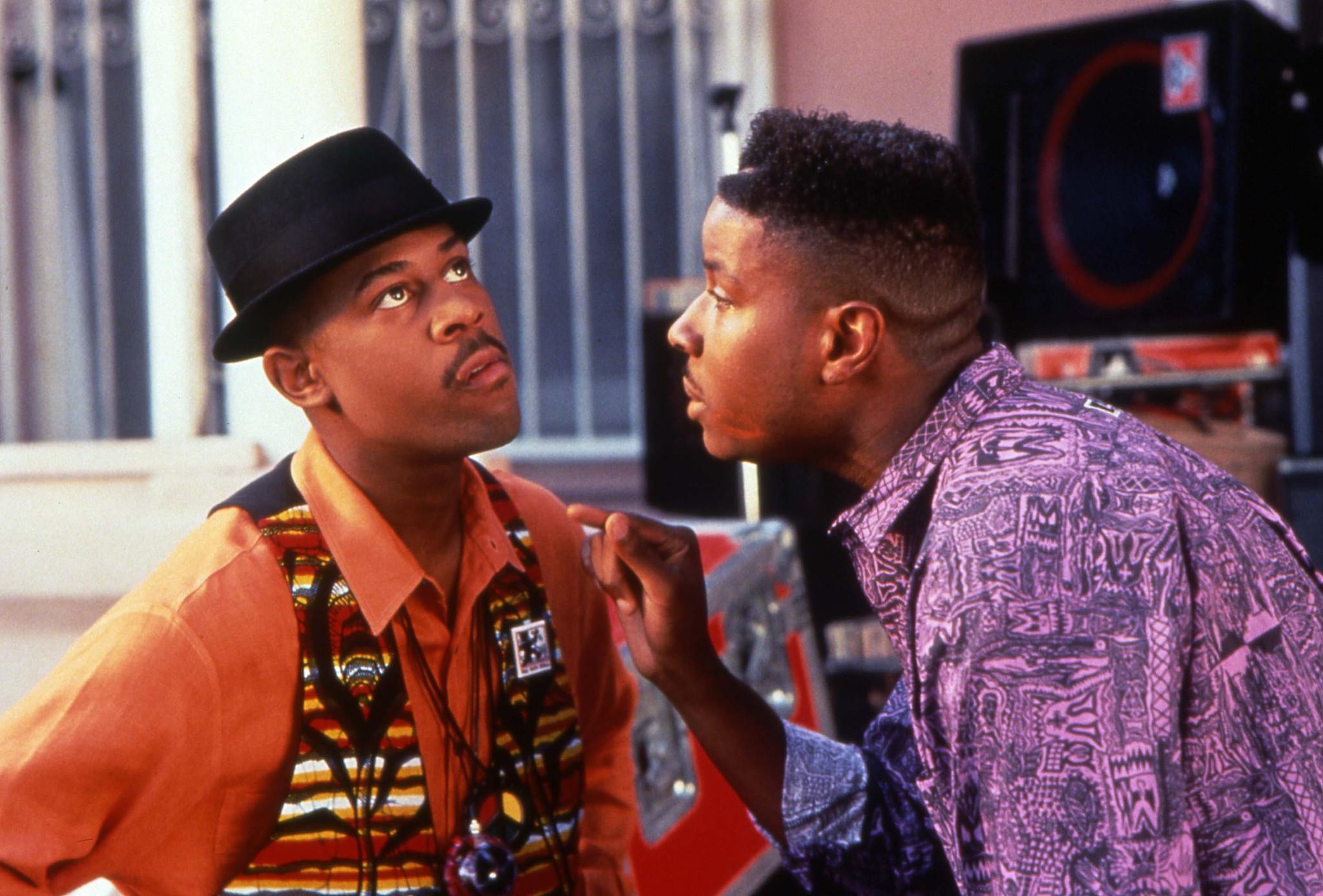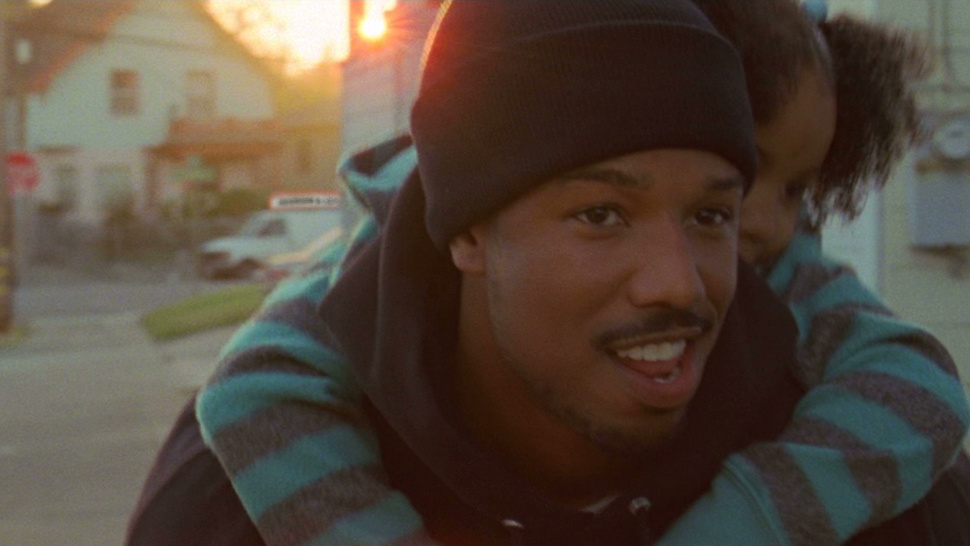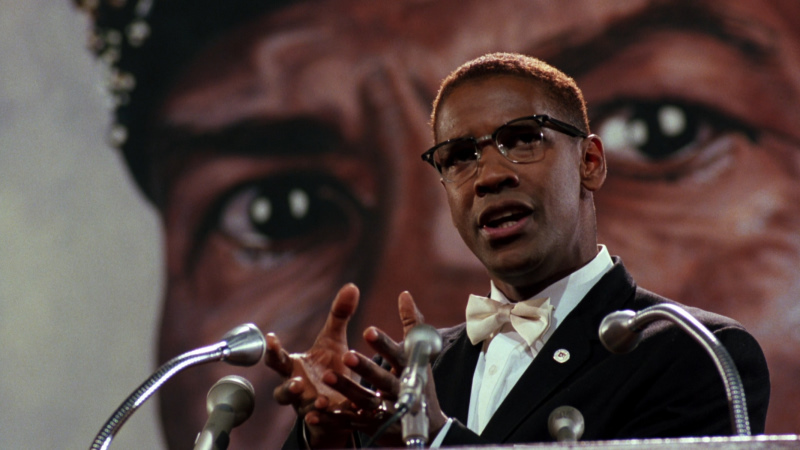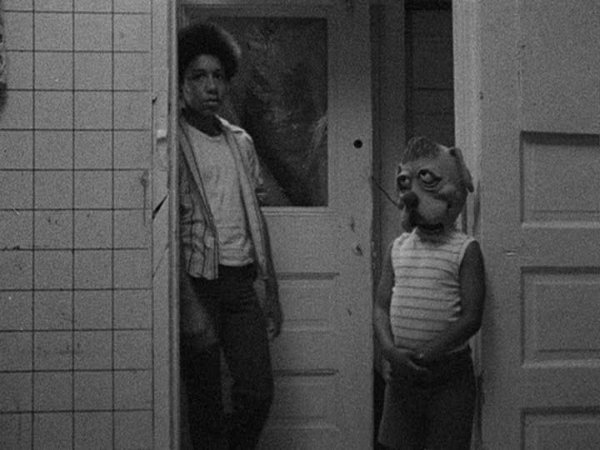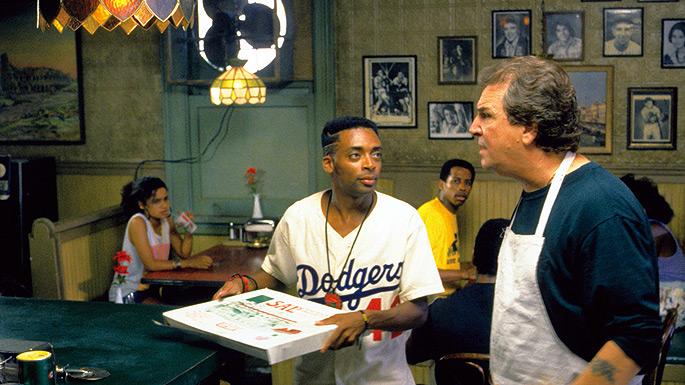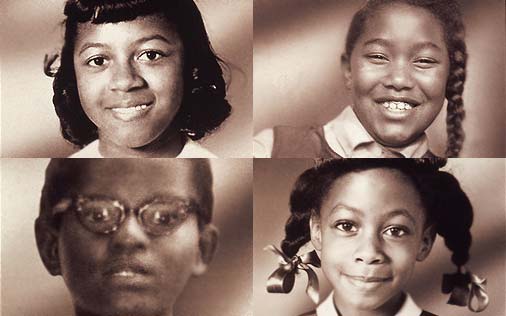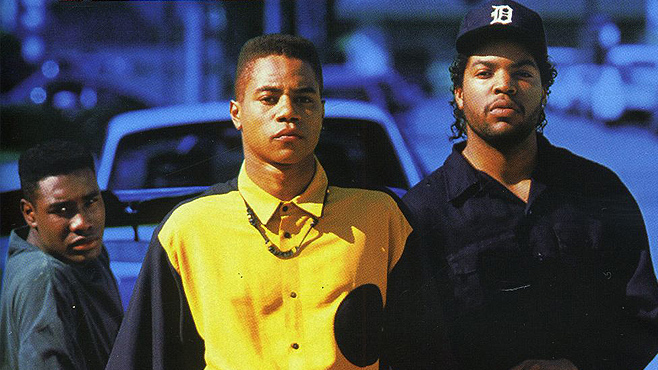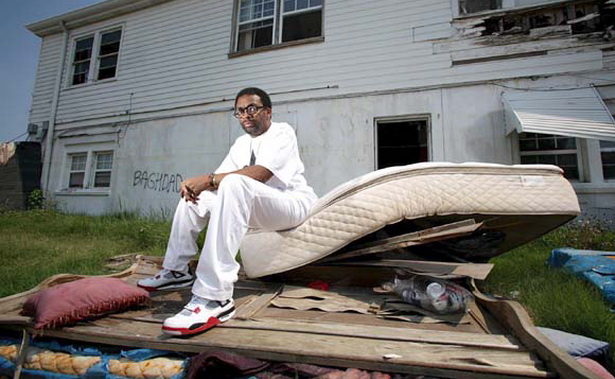8. House Party (1990) by Reginald Hudlin
Kid was invited to a house party at his friend Play’s house. However, due to a fight with bullies at school, his strict father grounds him. Kid escapes his house to go to the party, crossing his fingers to not get busted. This musical was most famous for the kid’n’play dance sequence during the house party, which was a battle of the sexes between Kid and Play plus the two girls they both like. This dance even turned into a fad during the time the movie was released.
This silly high spirited movie is not to be taken seriously. It is just for fun, a reminiscence of teenage mischiefs trying to live the moment without worries of the future. The musical numbers are hip-hop songs without adding any stereotypes of drugs, violence nor unprotected sex. In fact, it actually shows a scene in which Kid refuses to have sex because there are no condoms.
7. Fruitvale Station (2013) by Ryan Coogler
Ryan Coogler’s powerful and sensitive debut feature reconstructs the last 24 hours of Oscar Grant’s life played by Michael B. Jordan. He is a confused character who is still unsure of where he’s going and is the constant worry of his loved ones. He demonstrates his affections to his daughter Tatiana and is firm in staying with his girlfriend Sophina (Melonie Diaz).
Oscar is not presented as a rough thug, rather, there is a natural sensibility portrayed by Jordan. Temperamental, yet sweet with his young daughter. These moments of racing with Tatiana and promising to take her to Chuck E’ cheeses, the fights with his girlfriend yet tactful reconciliations are what makes this character a human being. Even if he’s screwed up by going to jail, he has a heart willing to take care of his family. He even tries to stop selling weed to avoid trouble. It is an example of nobody being perfect, but still falling victim to the harsh judgments of our culture.
6. Malcolm X (1992) by Spike Lee
A biographical -epic of the Black Muslim leader, Malcolm X. Denzel Washington stars as this activist. It dramatizes key events of his life such as his criminal days, the years he spent in jail, converting to Islam, advocate for the Nation of Islam, his marriage to Betty X, pilgrimage to Mecca and reevaluation of his views on white people. The Screenplay was based on Alex Haley’s 1965 book The Autobiography of Malcolm X. It won accolades for Denzel Washington’s acting including the New York Film Critics Circle award and an oscar nomination.
Although the film is three and a half hours long, Spike Lee manages to keep the audience watching with fast paced rhythm, close ups and vibrant colors. It is a controversial figure to depict in a movie, particularly during Malcolm X’s extremist phases, but Lee has a very objective presentation of this, with a very smooth transition of X’s change of mentality. The constant change this activist faces present an example of how we have the power to modify our lives. From criminal, to Black Muslim leader to equal rights activist, these are in essence the hard lessons of life, the struggle of discovering himself.
5. Killer of Sheep (1977) by Charles Burnett
Killer of Sheep is not meant to force a particular feeling. It is a study of a blue collar worker who struggles to maintain his family in South Central Los Angeles. It is a story of morale, where a man amidst poverty strives to hold on to values that are constantly trying to be eroded by the temptations of outside forces. Instead of demonstrating a main character who finds positivity by becoming a doctor as synonym of a better life, he understands the meaning of happiness lies in enduring his circumstances by accepting life as it is.
Not even the photography is presented as fancy. It was shot with real locations and realistic situations adjacent to the locales, reminiscent of italian neorealism. The film opens in the most riveting way: a man yelling at his young son because he failed to defend his brother in a fight. The boy’s mother steps in frame and slaps the child’s face.
The movie never explains who this boy was nor his parents, it is merely there to state the theme of survival, of persevering in an unfair world. Another scene depicts this cleverly, when Stan and his wife dance to the famous song “This Bitter Earth”. It was because of this and other songs that the movie could not be presented commercially, because of lack of money to buy the rights. This didn’t stop the director from removing the song, because he knew it was essential for the film’s theme. Thanks to this, it is now considered a classic.
4. Do The Right Thing (1989) by Spike Lee
Lee adapts the conventions of the social problem film : to make us think and debate. This is new for a black filmmaker, which provides authenticity for an often conventional subject matter. Even at the beginning, we witness the commencement of this debate as soon as Rosie Perez violently dances to the song “Fight the Power”, an incredible foreshadowing of what the movie is about : the heat, tension of “power between races”.
Often regarded as Lee’s masterpiece, it is a portrayal of racial and sexual tensions in a Harlem neighborhood in one day. This is manifested with bright color schemes and the famous hip-hop soundtrack. The tension is permeated through the characters as well. A memorable one was Radio Raheem, played by Bill Nunn. Although his dialogue is scarce, his violent gaze leave words unnecessary. His close ups presented with low angles demonstrate the purity of his rage brewing inside of him. Additionally, the soundtrack of the film is very well presented with Spike Lee’s poetic motion style, clearly manifesting his musical roots.
3. 4 Little Girls (1997) by Spike Lee
When a father has to sit down and explain to his daughter she can’t eat the same sandwiches as other people because she is black, it is more shocking not the fact that she can’t eat the sandwich, but to face the betrayal of the world from a very young age. This is what African Americans had to struggle with before the Civil Rights Act of 1964. Intolerance.
A heart shattering documentary about the 4 little girls murdered at the church bombing of 1963, of notorious racial terrorists who bombed an American church a Sunday afternoon, the usual time where families went together to pray and rejoice, when Sunday school was active. This was one of the most despicable hate crimes to have happened during the civil rights movement in Birmingham, Alabama. Four innocent, little girls lost their lives, girls who could have had a future. The attack was intended to stop civil rights protests, however, it ironically provoked an explosion of anger and greater push to fight for equality and justice.
Interviews in the movie consist of family members, politicians and people who covered the stories when it happened. It was nominated for an academy award for best documentary and features the famous song “Birmingham Sunday” by Richard and Mimi Fariña, Joan Baez’s sister.
2. Boyz N the Hood (1991) by John Singleton
“One our of every 21 black american males will be murdered in their lifetime. Most will die at the hands of another black male.” This was the first quote that appeared at the opening credits of the film in order to reinterpret the black male experience. It is one of the most brilliant portraits of the odyssey young black males must endure while living in a chaotic society. Doughboy (Ice Cube) and Ricky Baker are opposites.
Ricky is the all-american athlete trying to win a scholarship to USC while Dough succumbs to violence, alcohol and crime in his environment. Their friend, Tre (Cuba Gooding Jr.), is lucky enough to have a father (Lawrence Fishburne) who teaches him to have strength, to do the right thing, and to take responsibility for his actions.
The movie was nominated for best director and best original screenplay, making Singleton the youngest person nominated and the first African American nominee.
1. When the Levees Broke (2006) by Spike Lee
This four hour HBO documentary film is about Hurricane Katrina and its aftermath. Instead of maintaining a solely objective perspective, director Spike Lee uses these tragic events as an occasion to imply the significance of race and class while at the same time celebrating New Orleans culture. The movie takes stand on the level of accountability we collectively share for each other independent of race, class, age or perceived “worthiness”.
One of the most mouth gapping scenes from the documentary was a comparison with the horrific earthquake from Indonesia. The United States government was there in two days, while with the proof of eyewitness accounts and footage from news anchors, it took much longer for the federal government to help New Orleans, turning its back on its own citizens with a suspiciously slow response.
There are over one hundred interviews, interlaced with depictions of the storm and its aftermath. Some of the people interviewed include Mayor Nagin and Governor Blanco, and musicians such as Wynston Marsalis and Terrence Blanchard (who provides the score for the film). There were numerous awards for this film as well including the prestigious George Polk Award in the documentary category, the Sidney Hillman award in the broadcast category and several Emmy awards.
Author Bio: Maria Cristina is an aspiring filmmaker studying her bachelor of fine arts at UNC School of the Arts. She grew up in Puerto Rico with a passion for classic directors such as Stanley Kubrick and Alfred Hitchcock. Ever since, she’s been developing a screenplay called “Days in the Streets” hoping to start preproduction soon and wrote a novel currently in the editing process called “A Leaf in the Wind”.
